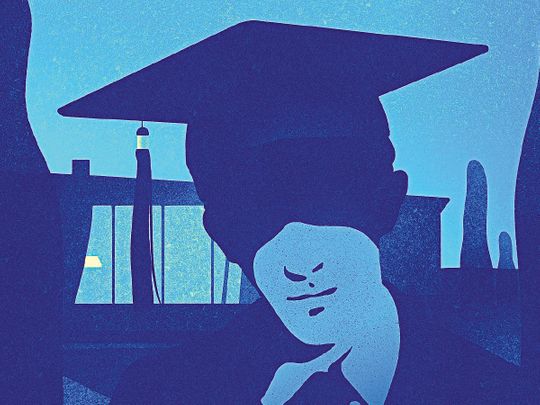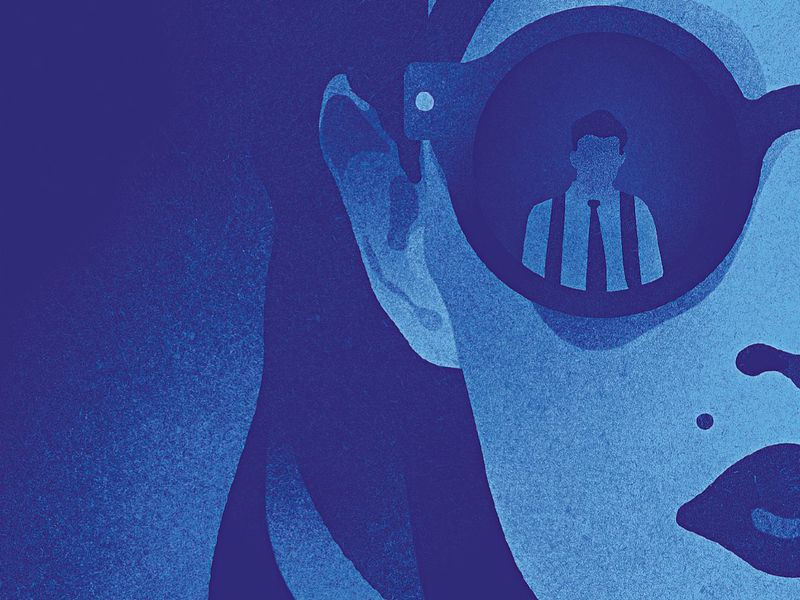
Highlight
Forget embassies, exotic capitals and airport terminals: the most exciting espionage is taking place on university campuses. Dive in to the ambiguous relationships that rely on intelligence and know-how.
In May 2014, professor Dajin Peng, an American born in China, was contacted by the FBI on the campus of the University of South Florida, where he taught. They offered him a funny proposition: lose his job and risk going to prison for fraud, or become a spy in China on behalf of the United States. Peng soon recounted the surprising blackmail to Daniel Golden, a journalist at the Wall Street Journal who frequently reports on American universities — he won a Pulitzer prize for The Price of Admission, an investigation into the admissions process at American universities. First, the journalist was incredulous: could it be that the ties between spy agencies and universities are that out in the open? He investigated the story, and found the evidence he was looking for. Not only was Peng’s story true, but it’s common practice. “Most spy agencies consider universities to be the premier recruiting ground today,” says Chris Simmons, a former counter-espionage officer at the US Defense Intelligence Agency. Intelligence exploits intelligence. In Spy Schools: How the CIA, FBI, and Foreign Intelligence Secretly Exploit America’s Universities, a long essay published last October, Daniel Golden exposes various examples: from a Chinese student stealing secrets about an invisibility cloak from Duke University, to the CIA placing recruiting agents in the Harvard Kennedy School, to ambiguous exchanges between an art school in Marietta, Ohio, and a Chinese spy school, the use of brains for patriotic purposes is commonplace. Which of course raises a number of questions. Since when? How? And what are these conditions doing to the traditional role of education?

There’s a major political reason for the increase in flirtation between campuses and spy agencies: teachers, students and administrators may have been reluctant to cooperate with the government after the Vietnam War, but the fall of the World Trade Center Twin Towers turned things around. Since September 11, 2001, members of the academic corps have been worried about national security, and they’re increasingly willing to help out the state. Add to that globalisation and the rapid rise of study abroad programs — more than 60 American universities have campuses in 24 countries from Italy to Kurdistan. And the fact that universities are elite institutions open to all, transparent and conducive to exchange: every day, new brains can be recruited during cigarette breaks. Young, confident minds still easily swayed by the romanticism of secrets.
Take the case of Glenn Shriver, a young student who has become a legend in this area.
A typical American, Glenn was studying abroad in China when he met “Amanda.” He spent a feverish night with her before she offered him a chance to infiltrate the Chinese secret services. He passed the CIA entrance exam in order to become a double agent, but was arrested by US authorities in 2010 and wound up spending four years in prison. A short film based on his experience, Game of Paws, halfway between parody and touching kitsch, was produced by the Counterintelligence Division of the FBI in 2014. It’s a preventative film, created to warn millennial Americans of the dangers of campus espionage.

The Cambridge Five
But is this all really that new? One of the greatest spy stories of the 20th century started in a classroom. Spotted and recruited while they were studying at Cambridge, the young English students Kim Philby, Guy Burgess, Donald Maclean, Anthony Blunt and John Cairncross became essential figures of the Soviet secret service during the 1930s. The Cambridge Five, as they later became known, met each other in Marxist circles in the end of the 1920s, where they were recruited by Arnold Deutsch, who had been sent to find new spies for the Soviet secret police. The terms of their recruitment: they were asked to distance themselves from the English Communist Party and open up a conservative political journal. The move was designed to make their treason undetectable. During World War II, the Five furnished crucial information to the USSR, including information about the Enigma code, which is believed to have assisted the advancement of Soviet troops and the Battle of Kursk in 1943. The treason stayed secret for 50 years, and the Cambridge Five never received any official punishment, although Blunt eventually lost his knighthood under Margaret Thatcher.
The recent punishment of millennial activist Chelsea Elizabeth Manning was much more severe. Born Bradley Edward Manning in 1987, the US Army analyst was sentenced to 35 years in prison in 2013 for espionage. In 2010, she orchestrated the transfer of classified military documents to WikiLeaks, including a video of an American firefight in Iraq. After she was convicted, Manning was subjected to solitary confinement, where she attempted suicide twice. While in prison, she came out as transgender and began taking hormone therapy treatments. On January 17, 2017 after numerous public intellectuals, including Michael Moore, had voiced their support of Chelsea, the Obama administration reduced her sentence to seven years. In January, she announced her plans to run for Senate in Maryland in 2018 on a Democratic Party ticket. “We live in trying times, times of fear, of suppression, of hate,” she says in a YouTube video announcing her candidacy. Her Twitter profile (@xychelsea) has all the marks of a stereotypical millennial — her posts include rainbow and unicorn emojis alongside calls to veganism. Spy 3.0.

The school of legends
And in France? Far from the image of old-school spies with thick trench coats and short hair, the newest generation of spies are graduates of elite schools, geeks, and over-credentialed. Between 2008 and 2014, France’s external intelligence agency launched a vast recruiting operation to hire 690 new agents, pilfering top engineering ta lent from Polytechnique and Télécom ParisTech. Between 2016 and 2019, the agency hopes to integrate 500 new spies. Some of them have been trained since the age of 15, thanks to Alkindi, a crypto-analytics competition offered to secondary school students via the defense ministry. Today’s spy work is mostly done on computers, and the nerds are coming out on top. Until recently, the National Institute for Oriental Languages and Civilizations was the preferred recruiting source. The institution teaches rare languages and attracts students who are interested in complex international relations. Now, top talent comes from École 42, a private, non-profit school founded in 2013 by French billionaire Xavier Niel that offers tuition-free computer programming courses. École 42 is open to students aged 18-30 who have not received a French baccalauréat (a post-secondary school, pre-university diploma) or who took a completely different career path before deciding to study computer science. Varied and eclectic profiles, then, of people who are used to working in austere offices like the ones depicted in Éric Rochant’s The Bureau, a television spy thriller centred around the lives of French secret agents. Did you notice the initials “BB” in the first line of the show's credits? They’re the initials of Bernard Bajolet, who led the French external security service from 2013 to 2017. It’s a sign of support from the agency, which hopes the show will instil a new desire among the young French to join a career that’s been forgotten in our collective imaginations. Maybe Mata Hari is ordering a coffee at our university dining hall and we have no idea.


